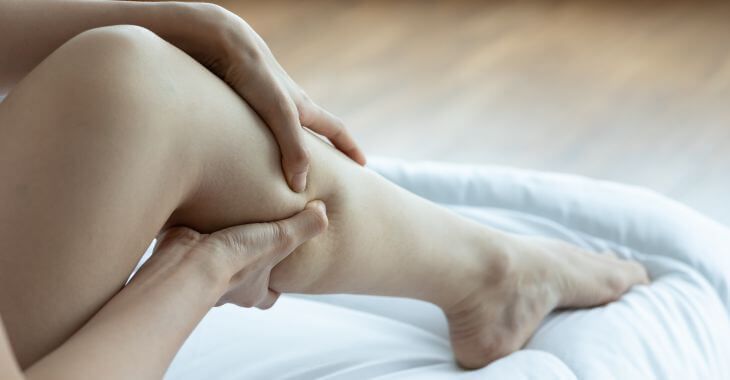Throbbing Leg Pain When Lying Down

You may have deep vein thrombosis if you are suffering from throbbing leg pain when lying down. This condition is caused by too much blood staying in the legs. This can lead to pain and tissue damage. It may even travel to the heart or lungs, which can have severe consequences.
Varicose veins
There are a few simple ways to relieve the throbbing leg pain associated with varicose veins, most of which don't require surgery. Keeping your legs elevated will increase blood flow toward your heart and improve the functioning of venous valves. You can also perform calf muscle exercises and flex your feet to reduce swelling.
It's essential to stretch during the day and at night to keep your muscles supple. During the day, you can also help prevent cramping by avoiding long periods of sitting. Also, ensure you're not sitting for an extended period before bed. This will help not only your legs and veins but your brain as well.
Peripheral artery disease
Throbbing leg pain when lying down may be a symptom of peripheral artery disease. It is a condition caused by plaque that narrows the arteries in the legs. This condition can be excruciating and can interfere with sleep and walking. Symptoms of peripheral artery disease can also include cramping and heaviness in the legs.
People with a family history of heart disease, stroke, or peripheral artery disease are more likely to experience this pain. Although the symptoms of peripheral artery disease may vary, they are almost always caused by reduced blood flow to the leg muscles. Treatment depends on which artery is affected and the restriction to blood flow.
Restless legs syndrome
Restless legs syndrome (RLS) is a common condition that can be uncomfortable or debilitating. It often occurs at night and is more common in women than men. It is more likely to be caused by an underlying nervous system issue. People with this condition experience cramping, tingling, or aching legs throughout the night. This sensation may be brief or last for several minutes.
There are several medications available to treat restless legs syndrome. You may want to consult a pharmacist for more information on available treatments. You may also want to try lifestyle changes to relieve the symptoms. These changes can help relieve leg pain and improve your sleep.
NSAIDs
NSAIDs for throbbing leg and foot pain are a standard treatment for various painful conditions. They are effective at alleviating pain but can have side effects when used for an extended period. NSAIDs should only be used as directed by your healthcare provider. If your symptoms persist, you should visit a doctor for a thorough evaluation.
If NSAIDs do not relieve your throbbing leg pain, your doctor may prescribe other medications. A doctor can prescribe a combination of NSAIDs to alleviate the pain and inflammation. However, it is not advisable to use these medicines for long periods due to their risks.
Steroids
A steroid injection is not always necessary, mainly when mechanical factors cause pain. Mechanical pain, unlike chemical pain, often occurs due to specific activities or movements. Up to 80 per cent of musculoskeletal problems are mechanical. However, steroids may be necessary in some instances due to a medical condition called avascular necrosis. This condition results in a buildup of pressure in the bone. It also causes joint stiffness and muscle spasms, often increasing at night.
In severe cases, a doctor may prescribe an epidural steroid injection. This procedure works by reducing inflammation around the sciatic nerve. An epidural steroid injection can be given up to three times a year. This procedure is commonly used in cases of back and leg pain. It is usually combined with physical therapy.



